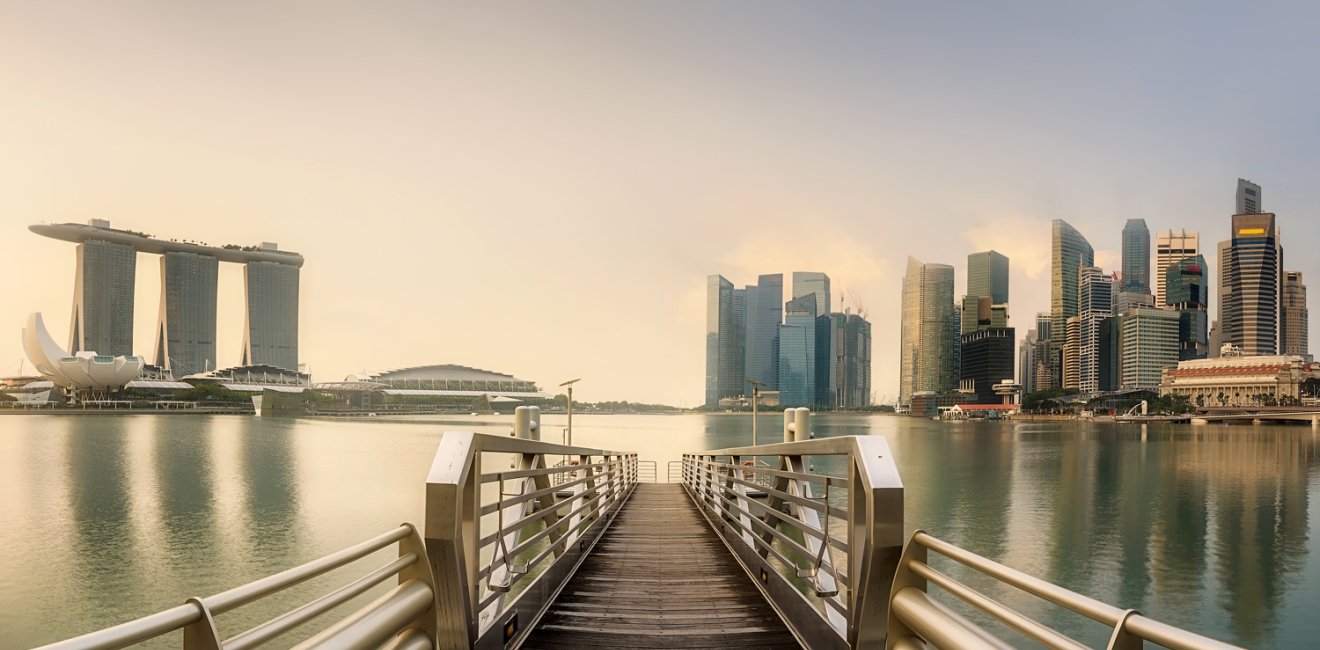
A blog of the Indo-Pacific Program
There was something inevitable about the choice of Singapore as a venue for the U.S.-North Korean Summit. Still, it was not a given. The Chinese wanted the event in China. Both Koreas reportedly wanted to revisit the Kim-Moon Summit venue at the DMZ. President Trump was enamored with the show biz potential of the DMZ but was finally persuaded that he should not be seen as visiting Kim on his turf. Another potential venue, Ulan Bator in Mongolia, was too far from the center ring of international media attention. Singapore seems to work on all counts: it is “neutral” ground, accessible, ultra-connected to the world’s communications/media infrastructure, with perhaps the best physical facilities (hotels, roads, hospitals etc.) in the world. One potential fly in the ointment was Kim Jong Un’s aversion to getting on an airplane. Singapore is 3,000 miles from Pyongyang. That concern faded when Kim flew to China to meet President XI earlier this week.
Southeast Asians in general and Singaporeans in particular, will be gratified by the choice. Southeast Asian governments, organized collectively through the Association of Southeast Asian Nations (ASEAN) have long prioritized “ASEAN centrality.”; In a word this means making Southeast Asia a diplomatic meeting ground or venue for East Asian (and international) diplomacy. From this perspective, it is important to maximize the number of high profile diplomatic meetings in the region. For example, every year ASEAN hosts an East Asian Summit of leaders from sixteen countries for discussions and bonding. Additional separate meetings are held between the ASEAN leaders and the President of the U.S. and the President of China. Arguably, these meetings have gained importance as Asian geopolitical tensions rise reflecting the growing power and ambition of China. The ASEAN states see themselves as a sort of neutral buffer between competing great powers–China, America, Japan, and even India.
Tensions on the Korean Peninsula, however, have always been outside ASEAN’s perceived ambit. Part of this is geographic; the Korean Peninsula is far from Southeast Asia. Part of it is the nature of Korean tensions involving the world’s most powerful states against a background of war and unremitting hostility across the DMZ for decades. The Chinese have made it explicit to ASEAN leaders that Korea is an arena where the big boys play and Southeast Asians should not get involved. This has reduced ASEAN to the role of spectator hoping that tensions on the Peninsula do not explode into a conflict that will engulf all of East Asia, including them.
This anxiety is long standing and the recent dramatic relaxation in Korean tensions is profoundly welcome. The fact that a Southeast Asian venue has been selected for the historic meeting between Trump and Kim puts icing on the cake. Suddenly, ASEAN centrality seems alive and well when it comes to the hardest, deepest, most dangerous geopolitical dispute in East Asia. Singapore, with close ties to the U.S. and to China and no history of bias when it comes to Korean issues is perfectly positioned to provide the venue.The Lion City is also appropriate in two other respects. First, the island city-state, small and inherently vulnerable, has systematically cultivated an elite of world-class strategists tasked with keeping Singapore secure and prosperous. They are natural hosts for what promises to be a geopolitical event of high drama and even higher importance. Second, Kim Jong Un, if he is serious about striking a deal, has to be motivated by the knowledge that his country is economically primitive compared to most of Asia. It is one thing to know that intellectually; it is something else to witness it firsthand. In Singapore, Kim will see the world’s most modern and efficient city. The contrast with Pyongyang will be as graphic as can be imagined.
The views expressed are the author's alone, and do not represent the views of the U.S. Government or the Wilson Center. Copyright 2018, Asia Program. All rights reserved.
Author

Adjunct Professor, Johns Hopkins University; Former Professor of National Security Policy, National War College and Deputy Staff Director, Senate Select Committee on Intelligence

Indo-Pacific Program
The Indo-Pacific Program promotes policy debate and intellectual discussions on US interests in the Asia-Pacific as well as political, economic, security, and social issues relating to the world’s most populous and economically dynamic region. Read more


Hyundai Motor-Korea Foundation Center for Korean History and Public Policy
The Center for Korean History and Public Policy was established in 2015 with the generous support of the Hyundai Motor Company and the Korea Foundation to provide a coherent, long-term platform for improving historical understanding of Korea and informing the public policy debate on the Korean peninsula in the United States and beyond. Read more





